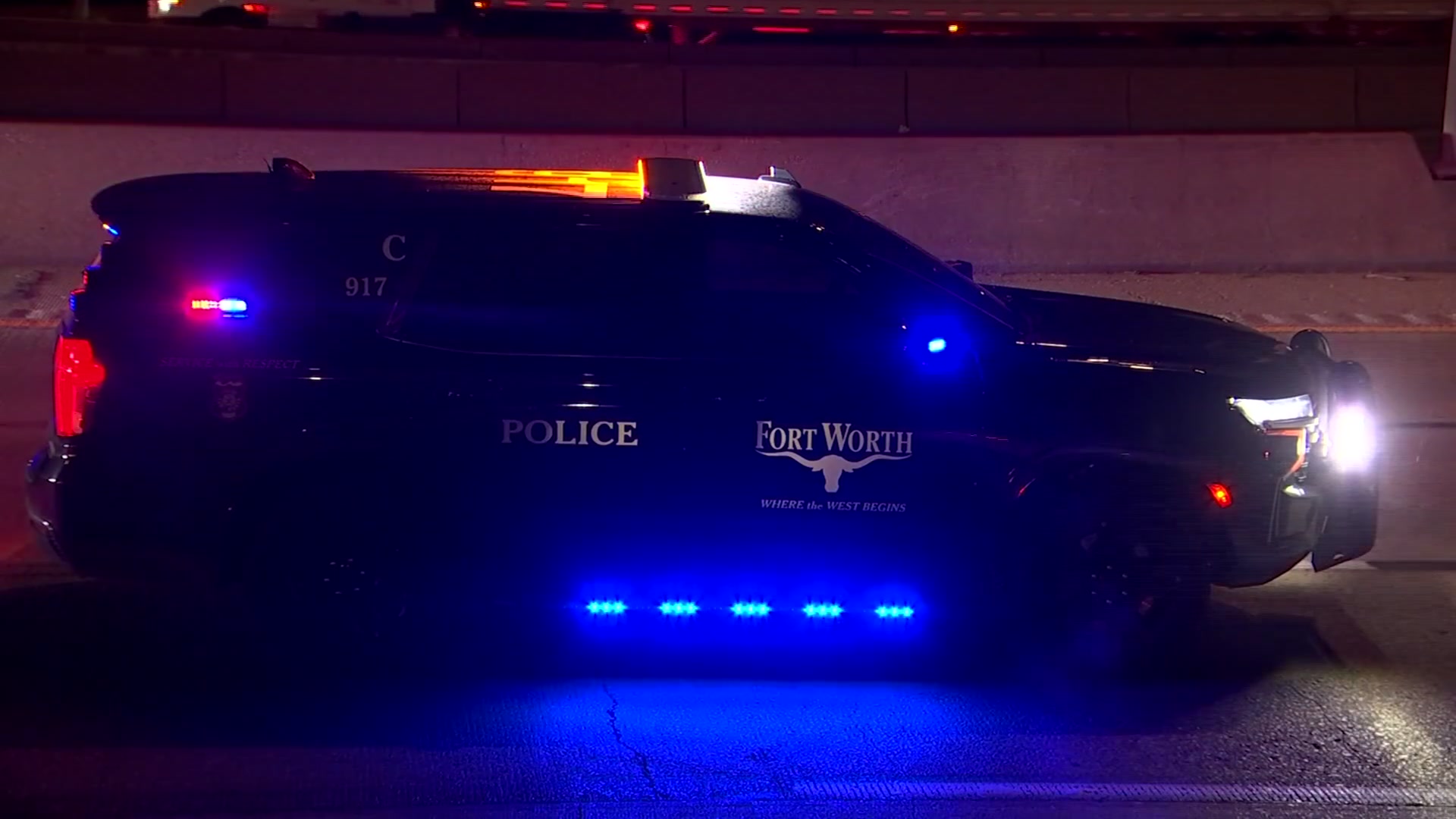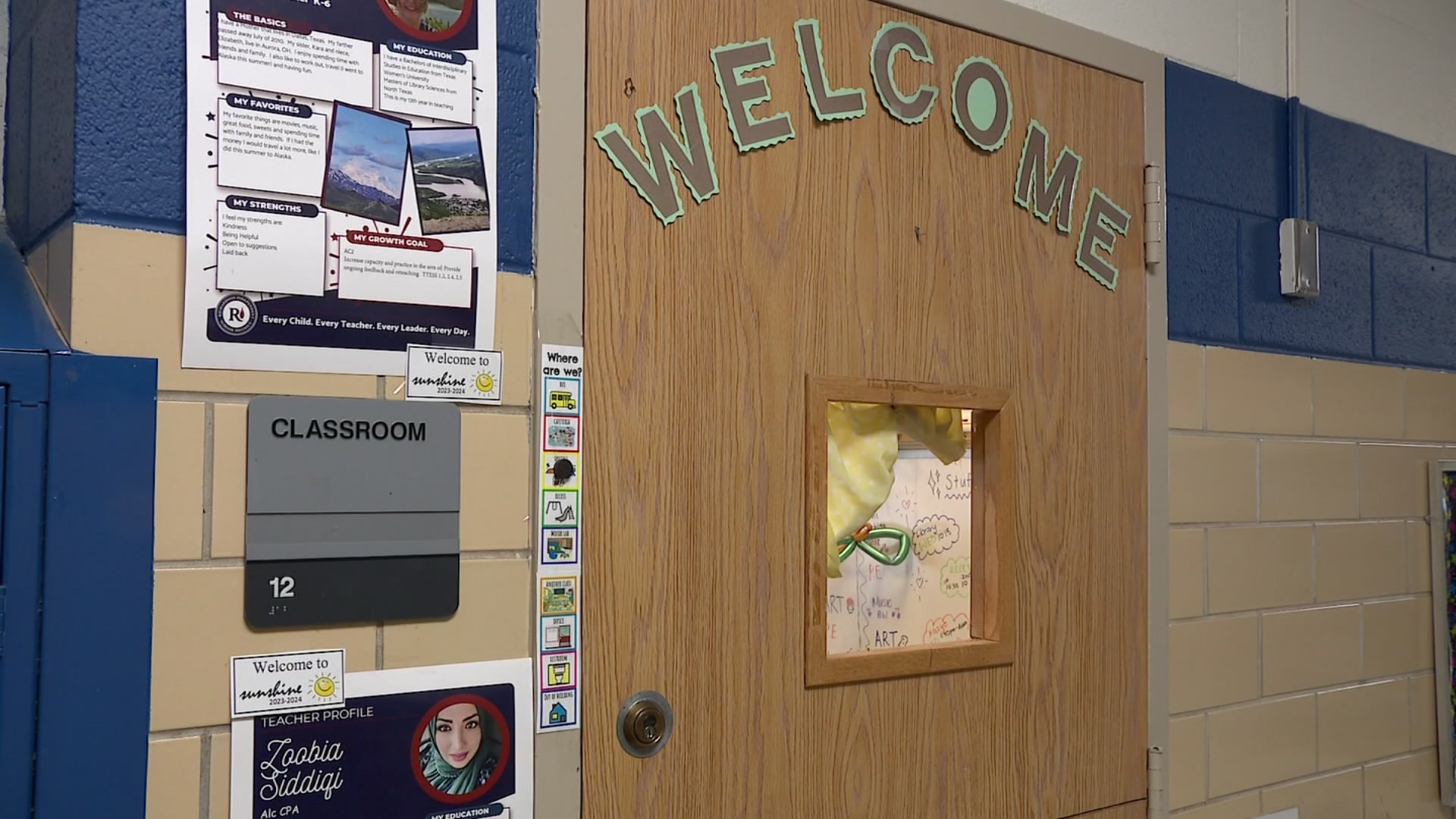As a mother and son walked out of their home Wednesday, an aggressive snake sunning itself on the porch struck multiple times at the pair as they left their house.
A porch camera was recording as the boy began walking down the sidewalk. Soon a snake lying along the wall begins moving and becomes more visible is noticed by the child. As the boy runs back toward his mom, the snake strikes in the child's direction but doesn't appear to bite him.
"The next thing I knew, he was screaming and when I turned a snake is coming towards us. And it’s just like out of nowhere," said Shannon Mashburn.
It strikes again as the mother picks up the child and runs past on the sidewalk. After passing the snake, both fell into the grass and suffered a few minor scrapes.
Get DFW local news, weather forecasts and entertainment stories to your inbox. Sign up for NBC DFW newsletters.
“Every time it would attack us, its mouth was opening so wide and that’s what scared me. And then when we fell, I thought, it’s really going to come back and get us," she said.
Mashburn said 4-year-old Carson was left with a bruise on his back. Her knee is also banged up.
While her husband combed the yard, they never found the snake to figure out what kind it was.
Local
The latest news from around North Texas.
WHAT TYPES OF SNAKES ARE IN NORTH TEXAS?
There are dozens of non-venomous and venomous snakes native to North Texas.
Some of the more common venomous snakes found in North Texas are cottonmouths, copperheads, coral snakes (easily identified by the rhyme "red touch yellow, kill a fellow -- red touch black, friend of Jack") and rattlesnakes.
Commonly seen non-venomous snakes include the Texas rat snake, bull, hog-nose (will often play dead) and garter snakes.
Unless someone is in danger, it's a good idea to leave a snake alone unharmed or get some help with relocating the reptile to a better environment.
If you've seen a snake and are curious about what type of snake it might be, there are a number of public groups on Facebook that help identify snakes. Check out the North Central Texas Snake Identification Group or the Texas Snake Identification Group to get started.
WHAT TO DO WHEN A SNAKE IS NEAR
It is an especially good practice to be careful as rain increases in the area in the spring and forces snakes to come out and seek shelter. Here's what to do just in case:
- Stay calm: Moving too fast can cause the reptile to react and bite your lower body
- Keep your distance, if you hear rattling move away from the area
- Keep your lawn cut low and remove brush or debris
WHAT TO DO IF YOU'RE BITTEN BY A SNAKE
If you've been bitten by a snake, here is what the CDC recommends.
- Seek medical attention as soon as possible (dial 911 or call local Emergency Medical Services [EMS]).
- Antivenom is the treatment for serious snake envenomation. The sooner antivenom can be started, the sooner irreversible damage from venom can be stopped.
- Driving oneself to the hospital is not advised because people with snakebites can become dizzy or pass out.
- Take a photograph of the snake from a safe distance if possible. Identifying the snake can help with the treatment of the snakebite. Not all snakes are venomous.
- Keep calm.
- Inform your supervisor.
- Apply first aid while waiting for EMS staff to get you to the hospital.
- Lay or sit down with the bite in a neutral position of comfort.
- Remove rings and watch before swelling starts.
- Wash the bite with soap and water.
- Cover the bite with a clean, dry dressing.
- Mark the leading edge of tenderness/swelling on the skin and write the time alongside it.
Experts say if you are bitten by a snake you should always seek medical attention especially if a child, older adult, or anyone with a compromised immune system is bitten.
If you have been bitten by a snake, contact 911, go to an emergency room, or call the National Poison Control Center at 1-800-222-1222 for help.
WHAT NOT TO DO IF YOU'RE BITTEN BY A SNAKE
If you've been bitten by a snake, the CDC recommends you DO NOT do the following things.
DO NOT do any of the following:
- Do not pick up the snake or try to trap it. NEVER handle a venomous snake, not even a dead one or its decapitated head.
- Do not wait for symptoms to appear if bitten, get medical help right away.
- Do not apply a tourniquet.
- Do not slash the wound with a knife or cut it in any way.
- Do not try to suck out the venom.
- Do not apply ice or immerse the wound in water.
- Do not drink alcohol as a painkiller.
- Do not take pain relievers (such as aspirin, ibuprofen, naproxen).
- Do not apply electric shock or folk therapies.
Sign up for our Breaking Newsletter to get the most urgent news stories in your inbox.



